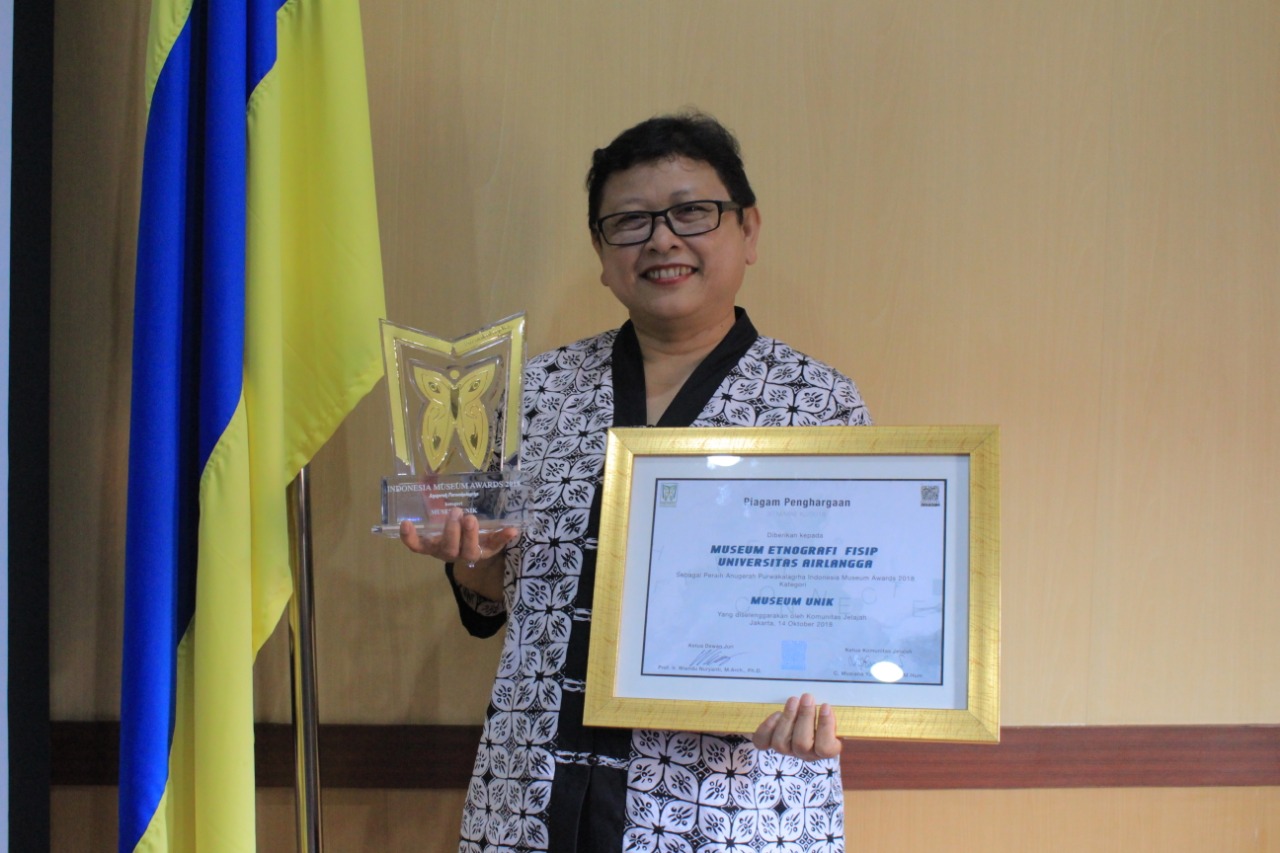UNAIR NEWS – FISIP UNAIR Museum of Ethnography and Death Study Center Universitas Airlangga received a prestigious national award. The award was Purwakalagrha Indonesian Museum Awards 2018. From 435 other museums, the Museum of Ethnography and Death Study Center UNAIR became the the most unique museum in Indonesia.
In this regard, the Head of FISIP UNAIR Museum of Ethnography and Death Study Center, Toetik Koesbardiati, Ph.D, said the award was an unexpected achievement. It’s just that, for the past three years, the Komunitas Jelajah as the organizer observed the development process and various innovations carried out by FISIP UNAIR Museum of Ethnography and Death Study Center.
The award, according to her was nothing but from various efforts and innovations carried out by all FISIP UNAIR Museum of Ethnography and Death Study Center. For her, the museum does not only function as a mean of education and recreation.
“More than that, one of the most important things that is featured from the FISIP UNAIR Museum of Ethnography and Death Study Center is incite the function of the museum as a medium for research or studies,” she explained.
Asked about the reason for choosing death as the object of the museum, Toetik said that death is a life cycle that is close to humans. Although in the community of death is quite feared and rarely discussed, death is the most important thing to think about by humans.
Not only that, for her, death is also close with various cultures and it involves many aspects. It makes death an object that is very feasible to study in order to educate the public.
“In death, there are many influential things, the economic, social and cultural aspects. In Indonesia, the cultural aspect in the rites of death have unique and extraordinary diversity. And they are not studied and explored more, ” she said.
Toetik pointed out, the death ceremony in Toraja for example, could be a thing to measure the level of social class in society. The same thing happened at Ngaben ceremony by Balinese people.
Regarding the next step, Toetik said that in the future the FISIP UNAIR Museum of Ethnography and Death Study Center would continue to make various innovations and breakthroughs and continue to explore the various cultural processes of death in Indonesia.
Appreciation from Rector
Regarding that great achievement, UNAIR Rector Prof. Nasih said that he really appreciated the achievement of FISIP UNAIR Museum of Ethnography and Death Study Center. He hoped that all study programs in UNAIR have a variety of unique and distinctive programs like those of Anthropology Program by managing the FISIP UNAIR Museum of Ethnography and Death Study Center.
“The achievements made by FISIP should be an inspiration for other faculties and programs,” he said.
Author: Nuri Hermawan





